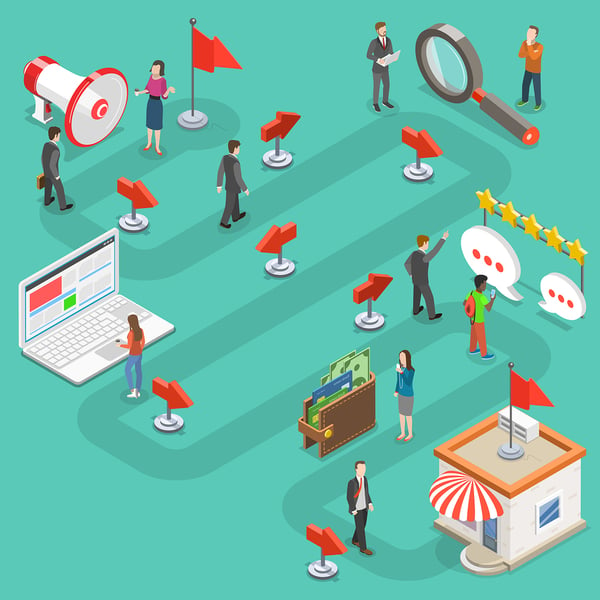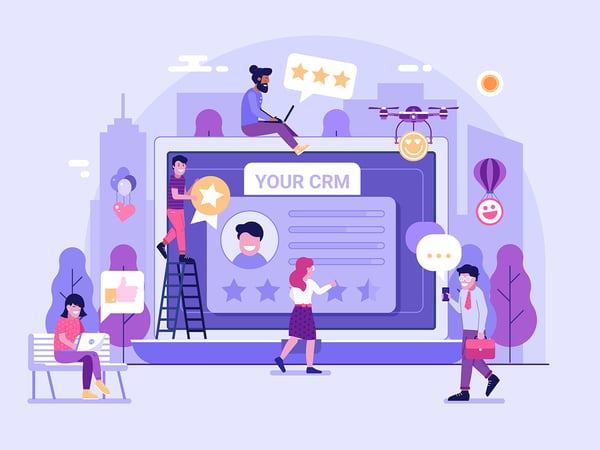CRM is a powerful tool that collects, organises and structures all your customer and prospect data; it also ensures that everyone in the company has the same updated information.
We all know by now that having in-depth and accurate data on your customers and prospects allows you to structure sharply targeted solutions which they will value. The more you know about them, the higher your chances are of giving them a positive lasting experience. In turn, this allows you to retain your connection with them, streamline sales and after-sales processes and improve profitability.
Do I need CRM?
If you’re researching about CRM, then it’s probably a sign that your business needed a CRM yesterday.
Customers are the heart of your business and keeping them happy should be paramount. Having a CRM software can help build valuable insights for better sales and management decisions. Because it tracks the contact's entire lifecycle, along with all of their interactions with everyone in your business. All this information and insight allows you to give them a distinctly accurate solution.
Neglecting to have a Customer Relationship Management tool could be catastrophic for all that hard-earned trust you've built between you and your customers. You wouldn’t want that, would you?
However, if that last part wasn’t convincing enough, here are 5 reasons why your business needs CRM right now:
- CRM automates processes that everyone hates doing
- CRM mines, organises and structures data
- CRM helps you develop a deeper relationship with customers
- CRM makes your team more efficient
- CRM means more insight discovery from data
CRM automates processes that everyone hates doing
Creating a smart, automated process will not only decrease human error, but also save your team’s time on doing mundane and repetitive tasks that make them want to pull their hair out. CRM can help automate the small yet time-consuming functions like filling out forms, sending reports, enrolling contacts into different lists, personalising welcome emails, it goes on (Salesforce).
This means your team can focus more time and energy on sales while the CRM system handles the rest of the small chores.
CRM mines, organises and structures data
A well-configured CRM automates much of the collection and storing of data and keeps it all in one place so that everyone in the team has a single source of truth. Everyone in the team will be able to view contacts who interacted with your website and content, or review any notes made about the contact from conversations with other team members (HubSpot). CRM also allows your team to create customised dashboards and reports, which make it easier to monitor data and view trends.
CRM helps you develop a deeper relationship with customers
CRM’s primary purpose is to help bring businesses closer to their customers and prospects. Because the system compiles and organises all the customer data, history, and where they’re at in their lifecycle journey, you’ll be able to understand them better.
As a result, you’ll be able to provide them with targeted solutions that they actually need.

CRM makes your team more efficient
Did you know that only 33% of a sales rep’s time is spent actually selling? 64% of their time gets spent on other tasks, like looking for data and updating customer information manually. Imagine how much more efficient your team could be if data were organised and updated automatically across the board. No more asking your coworker to find that email a customer sent you 2 months ago. Yep, you read that right; you can see email interactions between other team members and the customer.
CRM means more insight discovery from data
Customer data is vital for a business, especially to the sales team. So when information is strategically organised, it can surface meaningful insights to help make better management decisions in the future. When CRM organises your data, it helps you better understand the customer’s behavioural patterns, see what’s working in your sales and marketing efforts and what’s not. Because when you learn from you and your teams’ mistakes, you can move forward to grow better.
CRM is a powerhouse for customer data, but it’s only as strong as you make it.
Research shows that 74% of companies that utilise their CRM data efficiently report to have better customer relationships and increases customer retention by 26%.
Chat to us to learn more about CRM and how to get your customer data working harder for you.

